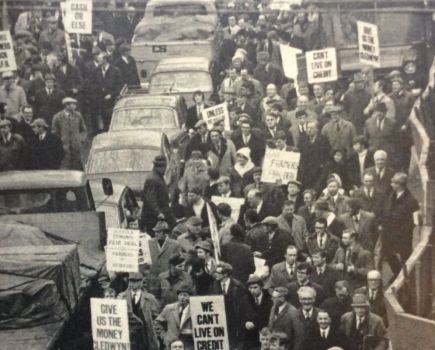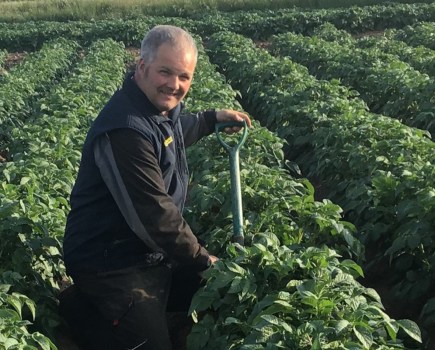Another summer. Another harvest. Another stint of incarceration in the combine can. That time of year when all other elements of human existence are suspended. Everything it seems, from meals to bowel movements, are relegated in importance, subjugated by the need to get the harvest in.
You wonder if any other profession experiences anything quite like it. Fishermen have cycles where the fish are plentiful or in season and when they are not, but it’s peppered through the year. Ice cream vans do more business in hot weather, but their season can last half the year and heatwaves can occur from Easter through to the autumn.
Accountants get their peaks and troughs according to tax return dates in the calendar that can lead to some extra busy periods burning the midnight oil but seeing as it doesn’t involve getting hands dirty, it can’t be considered proper work. I suspect farming is the only trade to experience this six-week frenzied culmination of a working year where all other distractions are avoided.
This was all imprinted on me at an early age when the sound of the roar of the combines in the yard signalled normal family life was now on hold. I like to think if someone had told Dad that the Queen wanted to visit the farm in Aug, his snap response would have been “well, no one will be able to stop for a chat with her if we’re cutting”.
Twenty years on as a youngish married man, I remember one late Dec morning proudly announcing to Mum and Dad that my wife was six weeks pregnant. While mum was all tears and kisses, Dad’s unimpressed response was “that’s cutting it fine – if she’s late you’ll be harvesting”.
It was as if I’d been unaware of the farming code of conduct that stipulated you should only risk getting your wife pregnant as the days start to draw out. Unbeknown to me, during the critical month of Nov, complete celibacy was expected. When Dad eventually passed away ten years ago, appropriately he chose to go in mid-Sept, just after we’d finished the linseed. True to form, it was as if he wouldn’t have wanted a minor issue like his death or funeral to inconvenience the sacrosanct period that was harvest.
So harvest 2017 is now well underway here in north east Essex with the earliest start since 1976 (which doesn’t bode well given 1976 was ‘the harvest of dust’). This year we were into the barley during the second week of July and to date, yields have been mixed.
We have an 18 acre (7.3ha) field on the farm that runs down to St.Osyth creek which has gravel on the northern end and runs into some nice sandy clay loam. This, in turn, meets a belt of clay at the southern end where the land meets the estuary. At the top of field, the barley yield clearly suffered over the gravel due to the spring drought. At the other end of the extreme in the clay things were compromised by poor emergence due to the autumn drought. In the middle, what I like to think of the ‘Goldilocks’ area, things were just right and the yield was well above our ten-year average. In the cab I’d subconsciously trained myself to only look at the yield meter in the better yielding middle. The overall yield told an indifferent story but not a disastrous one, so I suspect this variation is going to be the story of this year’s harvest.
The good news with the six-row barley was it did suppress the blackgrass and so proves another crucial non-chemical means of control. The bad news is it’s selling price is a full £30 below feed wheat. So as I start to think about next year’s cropping, I don’t envisage a substantial increase in our limited barley acreage. Spring peas look a better option but, who knows, I might not be the only one reducing the barley acreage which will stimulate the price to ginger upwards. So at the moment, next year’s cropping is being pencilled in only.
Meanwhile I’ll wish you a good harvest. As you emerge from your tinted combine cabs blinking into the daylight sometime in late Aug or Sept, I hope your yields have given you the positive margin needed to make a year’s work rewarding and worthwhile.




